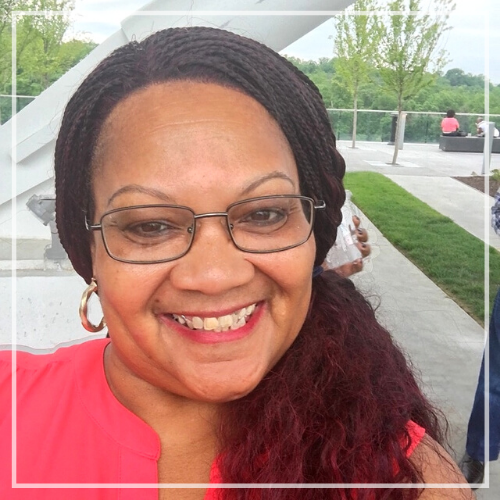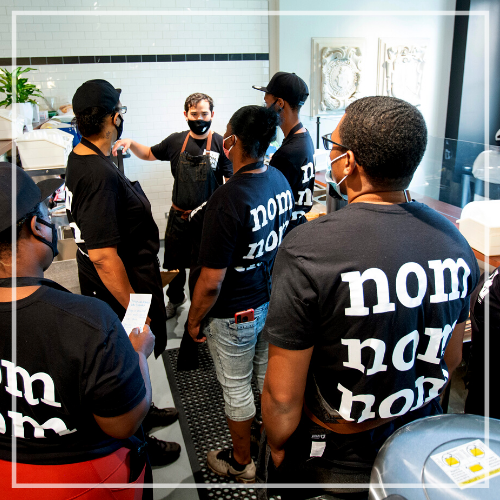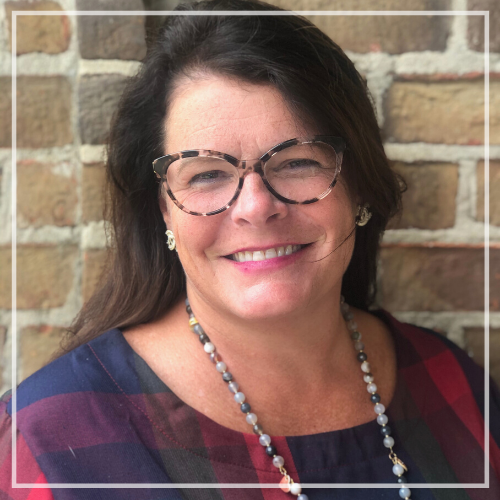State of Small Biz: Where small businesses stand one year into the pandemic
This National Small Business Week has been an important time to reflect on the challenges small businesses have endured over the past year. In order to highlight the current state of small business, we spoke with six entrepreneurs from across the country about their experiences running businesses throughout the pandemic. You can read all about their perseverance below.

Alejandro Flores-Munoz, owner of Combi Taco in Denver
Alejandro is a fighter and an advocate. In the middle of the pandemic, he opened up a drive through stand where he sold his poke to customers in his neighborhood and at a nearby bar. However, due to struggles with the pandemic, he had to shut down his business and has now pivoted to a catering taco food truck, Combi Taco. Alejandro, a natural entrepreneur, has worked to navigate the struggles of his own DACA status, pivoting his businesses and the setbacks from a devastating pandemic all at the same time.
He says, “Undocumented immigrants like myself encounter an uphill battle to achieve success. Our journey starts at a disadvantage, as we often lack access to resources or lack the knowledge of existing resources. However, we’re also used to overcoming barriers and we can achieve success through hard work.”

Joei Jennings, owner of JR Jennings Enterprises in Washington, D.C.
Joei runs J R Jennings Enterprises, LLC, a home-based janitorial services company in Ward 8 of Washington, D.C.. Ever since the first stimulus package was passed last year, it has been an uphill battle for Joei to access funding for her small business. She feels the federal funding programs were largely designed for small businesses that can be found on Main Streets and not for the small businesses that work behind the scenes keeping our communities functioning. Because of this, Joei has had to survive off of unemployment benefits. She hires from within her community to help her local economy, but this hasn't helped her to any kind of support from the city. She even had to pay a re-licensing fee in the midst of the pandemic, which cost her an entire unemployment check. Low-income communities have been historically extremely under-resourced, and the pandemic has only exacerbated this challenge.

Alan Moy, owner of Viet Nom Nom in Illinois
Alan, owner of Viet Nom Nom, was able to tap into his network in Chicago to receive resources and funding during the pandemic through organizations like Small Business Majority and Allies for Community Business. While Alan was able to secure a handful of grants and loans, he often thinks about how other members of his community would have had very different experiences in accessing relief funding. He says, "I can’t imagine how much more difficult this process would be for others who do not speak English or who have educational barriers. Even having worked in banking, the funding applications were incredibly difficult to navigate." For example, after re-negotiating his EIDL amount to avoid a personal guarantee, it took six months for his claim to go through. Because of the delays, he nearly had to consider closing Viet Nom Nom's doors. Luckily, Alan was able to work closely with community organizations to establish contact with the local SBA office and finally rectify the EIDL issues. Alan continues to advocate for his peers and the many inequities small business owners face. As he states, "Partnership means everything, especially during times like these. It's incredible to have meaningful partners in your corner to help you fight for your family, dreams, and staff."

DeMarcus Willis, owner of Willis Management and Associates in Smyrna, Georgia
DeMarcus Willis moved to the Atlanta area and started his business in 2015. Before the pandemic, Demarcus had Disadvantaged Business Enterprise and Minority Business Enterprise certifications with the state of Georgia for his dump truck hauling business and worked with various clients across the state as a subcontractor. But, last March, all streams of revenue came to a stop. No money was coming in, and bills started piling up. By the end of 2020, Demarcus had barely broken even. With the ongoing pandemic and everything moving online, he is now working to pivot Willis Management and Associates to take on more IT service contracts, and now that the second round PPP loans are available, he is feeling confident that his business will survive.

Lesia Daniel-Hollinghead, owner of Fun Time Clinton in Clinton, Mississippi
Lesia Daniel-Hollingshead's family has owned Fun Time Clinton for nearly 50 years offering child care services, after school activities and special events. The pandemic has put her in a precarious situation, and she’s struggling to keep her business afloat. She applied for PPP during both rounds, and she’s currently sustaining her business with the funds from a second PPP loan, which is expected to last her until June 2021. Due to public health guidelines, her business is running at limited capacity and this hurts her bottom line. If she’s unable to resume full operational capacity after her funding runs out, she might be forced to file for bankruptcy. Despite scattered funding efforts on the part of the federal government, small business owners still need aid if they are going to recover from the pandemic.

Chrishon Lampley, owner of Love Cork Screw in Chicago
Chrishon Lampley, owner of Love Cork Screw, reports that she was able to increase her online sales by 272% and her profits by 100% from this time last year, and she did it all with a loan of less than $2,000 from the EIDL program. She credits much of her success to this summer’s push to buy from Black-owned businesses.
She says, “The Black Lives Matter movement has opened up people’s eyes that were shut before to see the reality of what is happening to our Black communities and to realize that our Black businesses are being ignored. Corporations are now investing in Black businesses more than ever."
She finds that it is challenging as a small business owner to get capital. She is aware of many opportunities, but she says, “I feel like I need to hire someone to apply for me. Finding funding opportunities is a full time job.”
Chrishon is waiting on more funding now that the PPP and EIDL terms have been updated. In the meantime, she just signed a national distribution deal for her wines to be featured in larger retail markets and stores.
